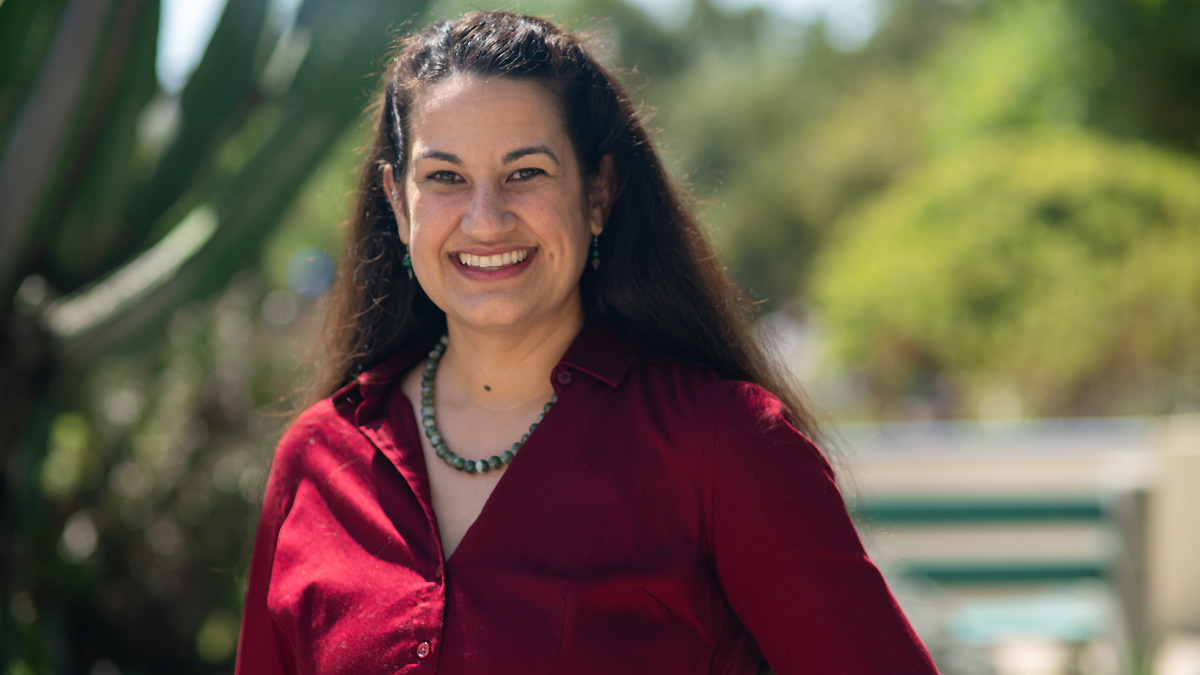COE DIFFERENCE MAKERS: Dr. Melissa Soto Examines How Kids Think About Math

When she’s not teaching courses in San Diego State University’s School of Teacher Education, you might find Dr. Melissa Soto back in elementary school. The associate professor of mathematics education estimates that, over the past three years, she has spent at least 200 hours visiting San Diego-area classrooms, guiding lessons and talking with children about math.
“When I got here to San Diego State it was really important for me to find teachers and find schools where I could go and talk to kids,” said Soto, who has partnered with 110 local teachers and reached hundreds more through virtual professional development via the San Diego Math Project.
“At the heart of everything that I do is children's mathematical thinking, and how we can support students in making sense of math. And who doesn't love hanging out with kindergarteners? They're just the best."
The arrangement has paid dividends for all involved. For teachers, it’s a chance to have a role model in the classroom. For Soto, it’s an invaluable opportunity to advance her research. And for future math teachers at SDSU, it provides a sneak peak into the diverse classrooms they will soon lead.
Learn more about Soto’s work, in her own words:
On the value of local partnerships
“It's really important because I get a chance to see what's happening in the schools and then bring it back to our students here at San Diego State. I can say, 'This is what I saw today just down the street.' The teachers have been really lovely and so generous with their time. I really appreciate that. I also appreciate that they don't just keep what they learn to themselves. They share it with other teachers and with their administrators.”
On talking to kids about math
“I tend to be brave and just go up to kids and talk to them. Sometimes other kids will say, ‘You can't talk to them, they don't speak English.’ So I'll switch into Spanish really quickly and start talking to the child. You'd be amazed at the light that shines in that kid. I love being able to ask them how they solve the problem and then sharing that with other kids. I've also been told, ‘Don't talk to that kid, we're testing him for special ed.’ Well, the moment you tell me not to talk to a kid, that's the first one I go to. I love to show that all kids are mathematically brilliant and have important things to say.”
On supporting future teachers at SDSU
“It's funny because I actually started my master's in counseling education. I did a semester of that and I thought, ‘This is too emotional, I can't do this.’ I decided I wanted to do something more analytical, which is what led me to math education. I've come to realize that math ed is also very emotional. There's a lot of trauma that people go through and have experienced, so a lot of times my class is about trying to heal that trauma and support (SDSU) students in realizing that they don't have to be amazing mathematicians to be good math teachers. But they do have to be curious about kids' thinking.”
On her own math Achilles’ Heel
“I'm not very good at higher level math. (laughs) Here's the thing: I took calculus in high school and I scored high on the AP exam and everything but it was all memorization. I don't use it anymore, so I've forgotten just about everything. Whenever I do any kind of higher-level math, I get a lot of math anxiety. So my world is elementary mathematics. Anything above that is not my thing.”
